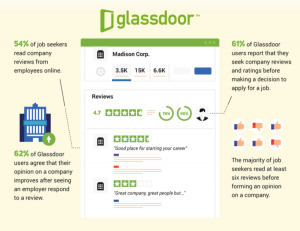— July 10, 2018
There’s been an uprising trend in the virtual workforce across all industries and organizations of all shapes and sizes. In the U.S. alone, nearly four million professionals work from home at least half of the time. As the top marketing recruitment firm, we’ve placed a number of marketing professionals where location did not matter.
You’re vying for top marketing talent that contributes a meaningful ROI – how do you go about finding the best available without any restrictions? Finding leading marketing talent may require you to offer a relocation package, especially if you’re in a smaller market or looking for specific industry expertise. However, advanced technology allows a distributed workforce more than ever, making organizations wonder if relocation is necessary or if the benefits of sourcing remote employees win in comparison.
The Importance of Digital Workspace
Do You Need the Expertise of Remote Marketing Recruiters?
The technology exists where all white collar workers could work remote, yet still relatively few do. What do you need to determine what will work best for your company and driving results?
How do you accurately determine which structure is best for your organization? Should you source your entire marketing team to work remotely, have a distributed team of in-office and remote workers, or have your marketers all on-site daily?
In order to evaluate the pros and cons of remote workers vs. relocation, you must assess each department, function, and person on an individual basis. Evaluating how these factors impact your bottom-line helps you make a better decision in choosing the right choice for your business.
Quality of Talent
Is the role you’re looking to fill met with an accessible supply of skilled marketers?
If you’re located in a city and looking for talent that’s not industry-specific or with skills that aren’t incredibly rare, locating great marketers within your area shouldn’t be difficult. If you’re in a city where there’s not enough expertise in your industry or in a smaller market where it’s challenging to relocate to, you may want to expand your options and consider remote options so you can get a broader range of quality talent.
If you’re in a particular industry like technology, the selection of talent is likely limited in your local area. In this case, hiring for remote marketing talent is a smart idea. If the best candidate for a job is across the state or country, you no longer have to settle for a less-qualified marketer that just so happens to be local.
Unless the position you’re hiring for requires on-site attendance such as a C-level or executive marketing position, you limit your options for attracting and hiring top talent. Conversely, you may have to offer a hefty relocation package to hire the type of talent your marketing needs.
Remote options attract more diverse talent. With a larger talent pool, you get a diverse and innovative workforce with employees that have differing viewpoints, capabilities, and opinions that contribute to a wider range of solutions to business challenges.
We’re increasingly seeing marketing’s top performers valuing flexibility in where and when they work just as much or more than salary. As marketing recruiters, we know you must be responsive and offer what they want if you don’t want to lose out on quality talent.
Engagement and Communication

Remote marketers simply cannot walk down the hallway and make a stop by a colleague’s desk to ask a quick question. With remote work, your team certainly has to put in more effort into communicating and encouraging transparency with one another.
One of the biggest disadvantages of a remote team is missing out on picking up subconscious cues like body language and facial expressions. This is why it’s so important for remote employees to over-communicate and overshare. Or else, assumptions can lead to misunderstandings, which lead to poor team collaboration and decisions. Fortunately, the influx of collaborative tools like Slack and Zoom make it easier to communicate virtually.
Communication is substantially more effective in person. There is nothing that supports quality collaboration and engagement than face-to-face interactions. Being able to discuss and share ideas, solutions and challenges in person is one of the most valuable advantages an on-site workforce delivers, especially if you’re looking to hire someone to lead your entire marketing department.
Leadership
Remote work solutions provide many advantages. However, when it comes to hiring a marketing head who has direct reports, they cannot be fully effective when working away from the office full-time. The downfalls outweigh the benefits here.
Marketing leaders need to have an active, hands-on management style to feel the pulse of their team and ensure every member is guided in the right direction. It’s difficult to lead a team, be embedded into the corporate culture and interact effectively with different departments if they’re not on-site daily.
A leader who is physically removed from the team is likely to be perceived as out of touch or distant of their team’s day-to-day work and challenges. Inevitably, resentment builds over time and productivity is lost.
If you’ve found an exceptional marketing candidate to fill an executive role that’s located outside of your area, the ROI they drive will likely outweigh the cost of relocating them.
Cost

Relocation packages are generally very costly. You have to make an attractive offer that entices a person to want to uproot their home, and possibly their entire family to come and work for you. This, however, is necessary if you’ve found a leader who will drive topline growth better than the average performer.
If you’re hiring an individual contributor with no direct reports, there’s generally no need to relocate them. If they are able to produce and perform as well as they can in the office, you will find higher savings from employing them remotely.
If you have a distributed workforce, you don’t need as much office space. Remote marketing employees are cheaper for your business than those that report into a physical location every day. On-site staff need space: a workspace, break rooms, meeting areas, rest rooms, etc.
However, if the benefits of having someone relocate and work in-house will outweigh the costs through the value they add to your bottom-line, the investment is worth it.
Productivity
Remote work allows your employees to work more flexibly around their own time instead of sticking to a rigid work schedule, giving them a better work-life balance and boosting productivity. However, someone who isn’t highly disciplined or self-motivated won’t be very productive in a remote environment without close management and will be better off in the office. This is why it’s critical to evaluate each position and candidate individually as everyone has a different style of working.
Both at-home and in-office environments can come with distractions. A traditional office setting may disrupt employees from being productive with minor interruptions and meetings that consistently occur. Kids or the comfort of being at home can also interrupt the workflows of remote employees.
A key factor you have to take into consideration is if your marketing hire wants to work remotely or not. When you’re choosing between remote and relocation, employees’ personal and professional preference impacts their performance. You don’t want to hire someone for a remote job who doesn’t want to work remotely and have it affect their productivity.
Conclusion
Many companies, big and small, are finding great success with the adoption of virtual roles. However, the circumstances of your business’s needs and goals are truly what determine if remote or relocation is the best solution for your marketing hires.
Both relocating your marketing hires and having them work remotely have their own challenges. Assess each role on an individual basis and don’t let cost or geographical location restrict you from getting the A-level marketing talent you need today!
Business & Finance Articles on Business 2 Community
(49)









